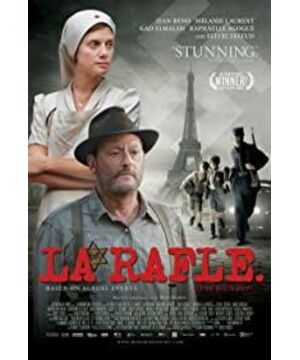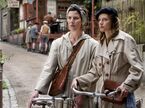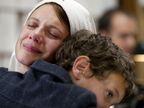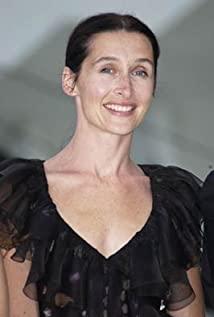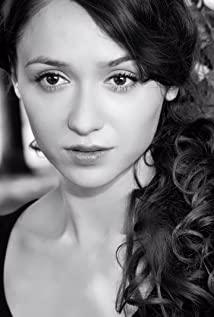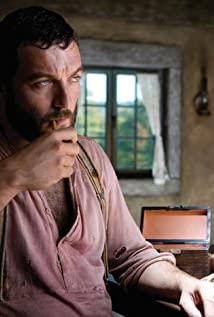History repeats itself forever, and far-flung slaughter happened generations ago.
It was a holiday. I just finished watching Ready Player One, and I haven't woken up from the cool future world that Spielburke built. Then I watched The Hunt in Paris, a massacre that took place in the summer of 1942. Today is only 76 years, less than a century.
In peacetime, the cruelty of war will never be understood. The shock brought by Spielburke's "Schindler's List" is still in my mind, but the black and white background always makes people think it happened a long time ago, but in this Paris hunt, naked again Open the wound of the past, the wound is still bright red and unhealed.
The film begins with a real black and white video of Hitler having taken over France, touring the country, the city, under the Eiffel Tower in Paris. I was a little surprised in the French film "The Name Storm", why leftist intellectuals would have such a violent reaction to his brother-in-law's plan to name the child "Hitler" (homonyms), then in this film they will A good explanation of the source of this intense emotion.
The war in World War II is no longer discussed, and I have seen a lot of movies about Jews and concentration camps, but most of them are told from the perspective of bystanders or rescuers. What is more worrying is the fate of the characters in the film. In this film, there is no opportunity to feel nervous, there is just deep fear. As the kid who escaped in the film said: What we should be afraid of is not death, but survival. Death has become an inevitable way to come early, and how to survive is the real fear. The protagonists of the whole film are not men and women facing extinction, but underage children who face the cruelty in human history without understanding the meaning of death in their ignorant and innocent eyes. The film began to earn my tears shortly after the opening, especially after I had two treasures at home, seeing children of the same age as them suffered this disaster, how could one not cry.
Paris, the occupied area, seems calm on the surface, only the six-pointed star on the chest of the Jewish people reminds that the storm is coming. More and more stringent regulations have added a gloom to this flamboyant summer day. Joseph was only 11 years old and lived in a courtyard with many Jews. They still get out of school and play games on time every day. The mothers are knitting sweaters in the yard. Only the dismissed father's arrival can remind them of their predicament. None of this seems to have anything to do with the war. But amid the blind faith of the Jews in the French, the storm came with increasing speed. The puppet government of France at the time set up a secret police school and cooperated with the Germans to round up the Jews in Paris, which was more cruel than the Germans. All the Jews were like lambs to be slaughtered in a circle, unaware of the slaughter they were about to meet.
France on the Mediterranean Sea is still shining brightly. World War II has swept through most of the countries, and Paris has been besieged. However, in this short-lived peaceful and peaceful life, there is no smoke of war. It is precisely because of the stark contrast between the bright sunshine and the cruelty that followed, that made me even more helpless and helpless in a bystander state. The scythe of fate has been lifted high above the head.
Delineating the target of the round-up - establishing a secret police agency - formulating a round-up plan - centralizing the enclosure - decentralizing and eliminating - stepping up the construction of the crematorium, the whole process is so cruel and calm. The rigor and efficiency of the Germans brought about the destruction of the French Jews. The integrity of the French household registration system has contributed to the enforceability of this massacre.
During the short but efficient roundup in the film, we also saw brave Parisians: a landlady stayed at the door all night, just to wake everyone up in time during the roundup; a kind-hearted wife from a neighbor rushed to the door. Nuonuo's family, pretending that Nuonuo is their own child and wanting to take them away; there are ordinary families who secretly took in Jewish children; there are kind-hearted prostitutes who stepped forward to rescue the troubled sister Nuonuo; there are firm beliefs and help Jews Pastor for girls; there are plumbers who do the dirty work and come forward. . . It was these brave and kind Parisians who hid and helped tens of thousands of Jews escape this catastrophe.
However, anti-Semitism was not a matter of Hitler alone, and anti-Semitism was widespread throughout Europe. Not all onlookers were so kind and brave, and there were many gloating, foul-mouthed Parisians who agreed with the roundup. The purpose of the film is not simply to tell this history, but more to tell human nature, reveal the truth, and wake up the future from this history.
Into the gymnasium of the cycling track, thirteen thousand Jews gathered densely. As the camera moves slowly, we see layers of dense, terrified Jewish families. This supposedly joyous stadium was filled with a crowd about to be destroyed.
The kind nurse Mono was a witness to the whole incident. She helped the children with her weak strength, but in this brutal ethnic cleansing, a person's strength is really very small. Uncle Jean Reno has been prolific, and appeared in the film as a Jewish doctor. He looked at the whole incident with an optimistic view, convinced that the executioners would be judged, but his personal destiny remained unchanged.
The director carefully tells such a story with a sympathetic attitude. From the gymnasium to the concentration camp, I walked under the thick shade of summer trees in a short trip. The crowds coming from afar did not seem to be dying, but more like traveling in groups. The occasional larger lunch in the camp was like a happy afternoon party with music. However, all these seemingly warm and bright scenes did not weaken the cruelty of the massacre in the slightest, but only gave people a chance to enjoy a little reunion, love, family affection and humanity before death.
The short-lived concentration camp life was soon over, and instead the men were taken away, the women were taken away, and a simple wave of hands became a farewell. When I saw the child being forcibly taken away from the mother, my tears couldn't stop. What a cruel person would use such a method to forcibly separate the mother and child.
Only 25 of the 13,000 Jews survived, and none of the 4,501 children who arrived at the camp were spared.
At the end of the film, Nurse Mono adopts more than a hundred children and offers the surviving Jews a chance to find each other. When we see the surviving Joseph, the weeping scene adds a little warmth to this tragic film. And when Mono saw Nuo Nuo under the photo, I, who had no religious belief, also thanked God. The lovely Nuonuo bears the tears of the whole film with her tender shoulders, whether it is sadness or joy.
The film is over, history is still rolling forward, this is not the only ethnic cleansing, this is not the only massacre of human beings, but history always repeats itself and repeats itself. I just hope that there will be no more history in the future.
Zionism, after reading it, you will understand why the Jews desperately want to own their own country!
View more about The Roundup reviews


